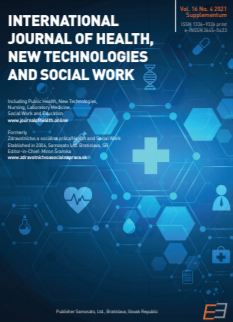Skeletal muscle damage in Covid-19 disease and its social-psychological aspects
Skeletal muscle damage in Covid-19 disease and its social-psychological aspects
Author(s): Jerzy Rottermund, Lucia Ludvig Cintulová, Zuzana BudayováSubject(s): Psychology, Health and medicine and law, Present Times (2010 - today)
Published by: SAMOSATO, s. r. o., Bratislava, Slovensko - MAUREA, s. r. o., Plzeň, Česká republika
Keywords: COVID-19 virus; skeletal muscles; muscle damage; physical training;
Summary/Abstract: Introduction: The health risks associated with the COVID-19 virus apply not only to the period of acute infection but also to people who are already ill. It is already known that pathological changes affect virtually every human organ. We do not know all the complications, especially the long-term ones, but they will be a challenge for services, not just for medical services. Aim: The article describes the impact of the Covid-19 virus on the human body and its pathological changes that occurred in the people who overcome coronavirus. Core: Skeletal muscles play a very important role in the biochemical processes of the human body, above all they enable the performance of movements. During the disease, the muscles lose their mass and weaken significantly. The article presents an evaluation of muscles selected from the literature in patients with COVID-19 and possible causes of reduced skeletal muscle efficiency and endurance. At the same time, the possibility of facing pathologies occurring in the muscles was indicated, with special emphasis on the use of physical exercises. Physiotherapists play an important role in the period of re-convalescence. Conclusion: Proper, often long-term cooperation of treatment teams with patients makes it possible to restore the functional abilities of muscles before the disease period.
Journal: International Journal of Health, New Technologies and Social Work
- Issue Year: 16/2021
- Issue No: 3
- Page Range: 111-118
- Page Count: 8
- Language: English

